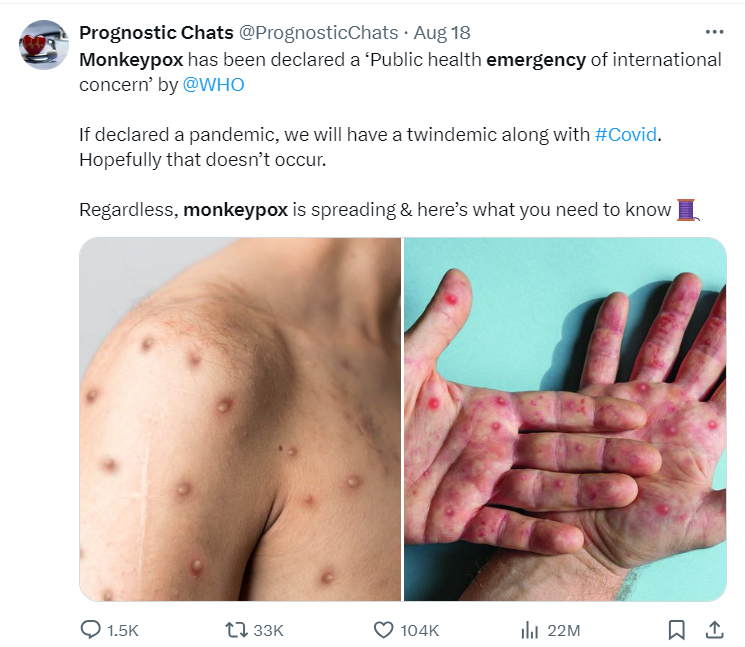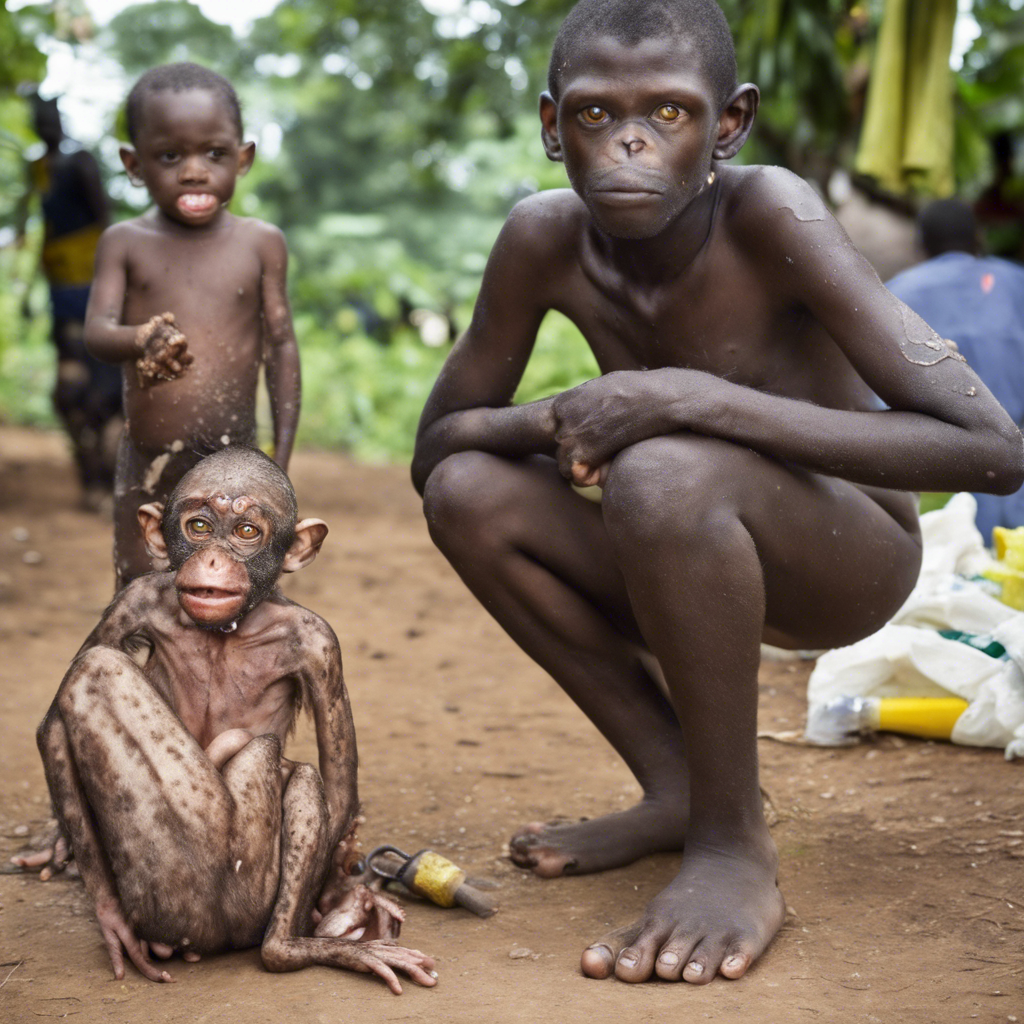The WHO Director-General, Tedros Adhanom Ghebreyesus, requested the meeting on Wednesday to determine whether the outbreaks of mpox, also known as monkeypox, are a global concern. The situation was declared a public health emergency by the Africa Centers for Disease Control and Prevention (CDC) on Tuesday.
Tedros stated in a post on the social media platform X, formerly Twitter, that “the Emergency Committee’s advice to me, and that of the [Africa CDC], which yesterday declared a public health emergency of regional security, are aligned.”
Monkeypox Cases and Borders
Mpox cases have been spreading all through numerous nations in Africa, especially the Majority rule Republic of the Congo (DRC) and adjoining Burundi, Kenya, Rwanda and Uganda.
The WHO chief expressed concern regarding the possibility of further spread in Africa. Tedros stated, “It’s clear that a coordinated international response is essential to stop these outbreaks and save lives” in addition to other outbreaks of other clades of mumps in other parts of Africa.
Over 14,000 cases of the virus and 524 deaths have already been reported this year, a significant increase from 2023. Tedros previously stated that distinct viruses known as clades were to blame for the mpox outbreaks. He stated at the meeting on Wednesday that in the DRC last year, the so-called clade 1b virus was spread “primarily through sexual networks.”
This clade is said to be more dangerous and easier to spread from one person to another. While clade 2 was the cause of the global outbreak in 2022, which was declared an international public health emergency, clade 1 has been present in the DRC for years.

In the past month, Tedros stated that approximately 90 cases of successor clade 1b had been reported in DRC-neighboring nations that had not previously reported cases of mpox.
Tedros stated, “A tailored and comprehensive response, with communities at the center, as always, will be required to stop these outbreaks.” tackling the causes of the outbreak In order to “understand and address the drivers of these outbreaks,” the WHO chief stated that the UN agency is collaborating with the governments of the affected nations, the Africa CDC, and other partners.
He stated, “For example, we are supporting laboratories to sequence viral samples and providing machines to analyse blood samples and confirm cases of mpo.” He went on to talk about “supporting case investigation and contact tracing” on the ground, health care worker training, and a lot more.
Response from WHO Regions
Tedros stated, “WHO has developed a regional response plan, requiring an initial $15 million to support activities related to surveillance, preparedness, and response.”
The WHO Contingency Fund for Emergencies contributed $1.45 million to the cost of this response. In the coming days, additional funds will be made available, and the WHO chief is also requesting additional support from donors.

Vaccines for Emergencies
To combat the mpox virus outbreak, two vaccines have been approved and recommended by the WHO. Tedros also invited manufacturers of mumps vaccines to express interest in producing them as part of an Emergency Use Listing (EUL) call last week to “accelerate vaccine access for lower-income countries which have not yet issued their own national regulatory approval.”
EUL will make it possible for partners like UNICEF to gather vaccines for distribution. Tedros stated, “We are working with all partners to facilitate equitable access to diagnostics, vaccines, clinical care supplies, and other tools.”
The WHO’s suggestions
Under the IHR, the WHO chief issued standing recommendations to monitor mpox cases in August. These recommendations were scheduled to expire in five days on August 20, 2024, but they will be extended for an additional year to “support countries to respond to the chronic risk of mumps,” according to the proposal.
Adapting public health and social measures to local contexts, providing guidance and resources for clinical mpox care, and other recommendations are some of the recommendations.
According to Tedros, WHO is “committed in the days and weeks ahead to coordinate the global response, working closely with each of the affected countries and leveraging our on-the-ground presence to prevent transmission, treat those infected, and save lives.” This commitment will be made in the “days and weeks ahead.”
By DNC
